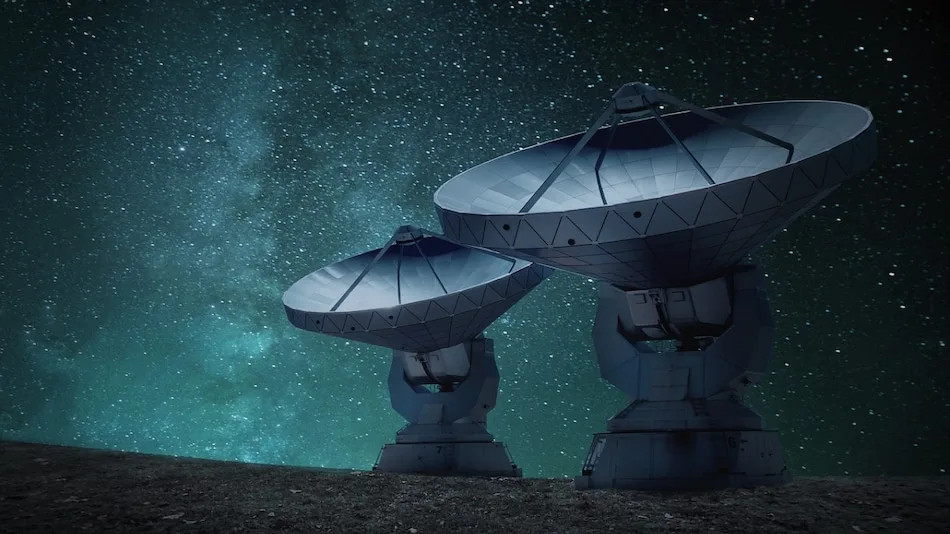Table of Contents
Elon Musk’s Starlink Satellites Could Severely Damage Ground-Based Radio Telescopes, Says Study
Radio waves from Starlink satellites are hindering the work of astronomers and affecting astronomical discoveries.

Photo Credit: Pixabay/ ELG21
The Starlink satellites are said to be creating substantial noise in the radio spectrum
Highlights
- Starlink satellites hinder space observation with strong interference
- Scientists struggle as SpaceX satellites disrupt radio telescopes
- Increased Starlink satellites affect views of distant galaxies
Elon Musk's Starlink satellites are causing significant disruption for astronomers worldwide. Scientists from the Netherlands, particularly the Netherlands Institute for Radio Astronomy (ASTRON), have reported that the growing network of Starlink satellites is interfering with radio waves used for vital space research. The satellites, designed to provide high-speed internet in remote areas across the globe, are blocking signals that allow astronomers to observe deep space objects, including black holes, exoplanets, and galaxies millions of light-years away.
Impact on Astronomical Research
According to Professor Jessica Dempsey, Director of ASTRON, the interference from Starlink's second-generation satellites (V2) is much stronger than the earlier versions. She highlighted that the electromagnetic radiation emitted by these satellites is up to 32 times stronger than what was detected from previous models, making it increasingly difficult for scientists to gather important data.
The satellites, currently orbiting Earth at around 550 kilometres above the surface, are creating substantial noise in the radio spectrum, blinding radio telescopes from capturing faint signals from space. This unintended interference is threatening the ability to explore and study distant cosmic phenomena.
- Ancient Barracks Unearthed With Egyptian Pharaoh Inscribed Sword
Scientists Urge Action from SpaceX
There are currently over 6,400 Starlink satellites in orbit, with numbers expected to surpass 100,000 by 2030. This rapid growth has raised concerns among astronomers. Cees Bassa, lead author of a study on Starlink’s effects, likened the radiation from the satellites to the brightness of the full Moon, drastically overpowering the faint stars astronomers aim to observe. Robert Massey, Deputy Executive Director of the Royal Astronomical Society in the UK, emphasised the urgency of addressing this issue, calling for SpaceX to take immediate action.
Astronomers suggest that simple steps, such as shielding the satellite batteries or improving the design to reduce radiation emissions, could significantly mitigate the interference. Without such measures, they warn that ground-based astronomy could face severe limitations, making it harder to study the universe.
Professor Dempsey noted that the situation is an existential threat to astronomical research if left unresolved. Scientists believe that as the largest satellite provider, SpaceX could set a precedent for responsible space operations.
- A Wobble from Mars? It Could Be Dark Matter, Study Reveals
- Asteroid Dubbed ‘God of Destruction’ Could Hit the Earth If This Happens

